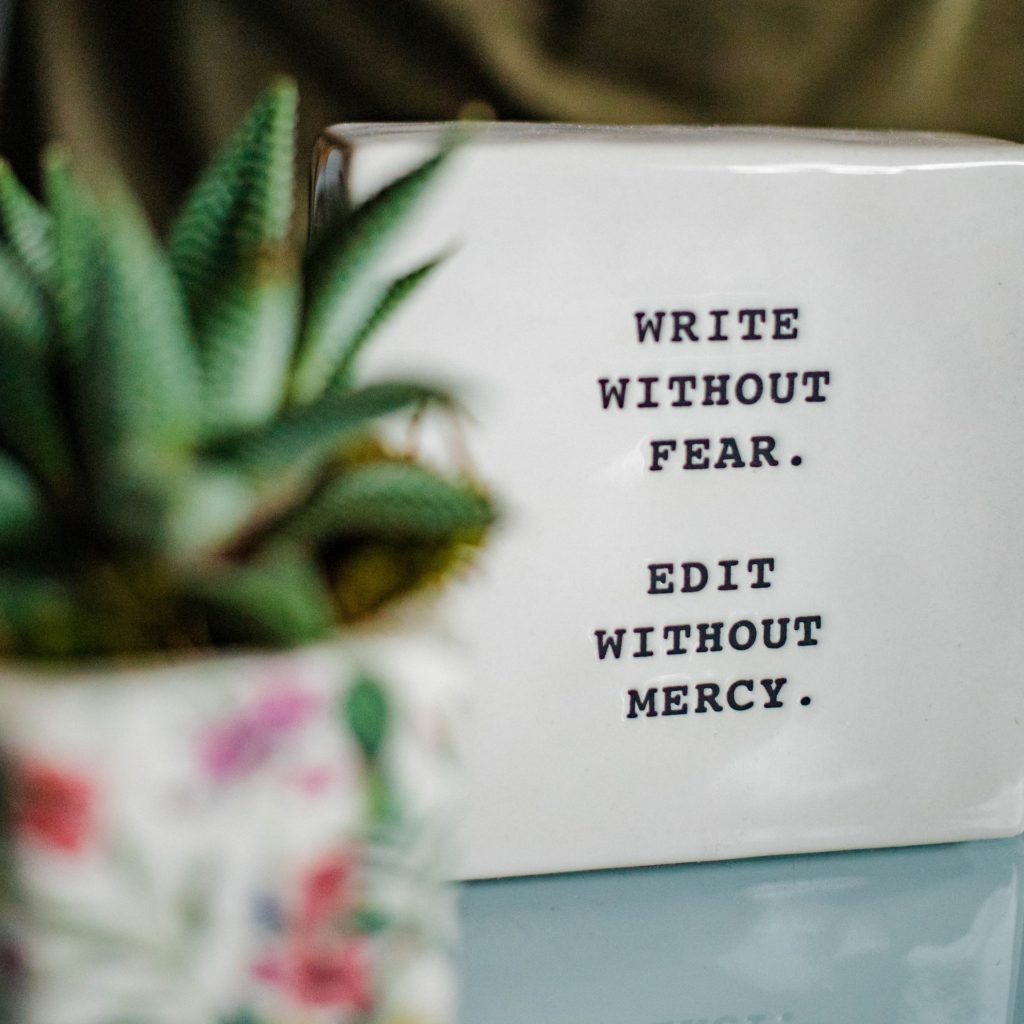Every writer I’ve talked to has an opinion on writer’s block. And here’s mine: “writer’s block” isn’t real. In fact, I believe the term itself is harmful, especially for young and inexperienced writers.
Now hear me out for a second. Writing is hard. I’m not here to claim that writing a novel is easy by any stretch of the imagination. In fact, there are few things in this world as intimidating as filling a blank page with your own thoughts. Even attempting that takes a lot of bravery, so I applaud anyone gutsy enough to give writing a try.
That being said, I’m also a strong believer that writers are their own worst enemy.
The Lie of Writer’s Block
The #1 thing I hate about the term writer’s block is how it mischaracterizes writing itself.

Many people think about writing like the Greeks thought about the Muses. That writing is this mystical force that happens beyond your own consciousness. That inspiration comes and goes like geese migrate for the winter. At the end of the day, if inspiration is something that just happens to you out of the blue, then great writing MUST be outside your control.
Herein lies the biggest lie of writer’s block. I’m adamant that writers are 100% responsible for their own writing. If a writer stares at her computer screen for two hours and walks away without writing anything, it’s pretty easy to blame the illusive writer’s block for her lack of productivity. Because “nothing came to me.” In reality, she wrote nothing because her fingers didn’t type a single word. And that, my friends, is a choice she made.
But This Isn’t a Call to Be Harder on Yourself
I have personal experience of just how vicious writers can be about their own perceived failings, so let’s skip the drama and get straight to the point. My real issue with the term writer’s block is that it paralyzes writers by turning us into victims. Let me unpack that.
Writers are not prisoners of their own wily creativity. Writing is a professional skill. And like any skill, it takes perseverance, practice, feedback, and brutal honesty with yourself to get good at it. This also means you have to write a lot of junk in your life before that junk will turn into something interesting and meaningful.

Writers are very much in control of how much practice they give themselves. And claiming “I have writer’s block” as an excuse not to write as often as you can—regardless of how much your writing sucks—is depriving you of the exact practice that eventually will make you a great writer. Sitting around waiting for your inspiration to arrive before you start writing is like an athlete waiting for their invitation to the Olympics before they start training.
Bottom line: writers need to push themselves to write a lot, but they also need to cut themselves a break on the quality. First drafts are SUPPOSED to be terrible. Don’t claim writer’s block as an excuse to take away all your practice. Because that practice is exactly what leads to great books—down the road after lots of learning and revision.
But there’s another aspect to this problem . . .
Claiming Writer’s Block Ignores the Real Reason You’re Not Writing
Don’t get me wrong, there are days when sitting down to write will be legitimately torturous for you. But labeling that feeling with a blanket term like writer’s block is putting your head in the sand to why you’re actually struggling to write. Once you figure out the real reason, you can fix it. And start writing!
In my experience, there are only three genuine reasons why writers can’t bring themselves to write.
Reason #1: The Dragon of Perfectionism
Oh you evil worm, I am well acquainted with thee. I already touched on this above, but no writer on earth writes a perfect chapter in one try. Even paid professionals write stupid first drafts, but stupid first drafts can be revised into a better second try. Blank pages cannot.
Confession: I am a prime culprit here because perfectionism almost killed my writing career before it even started. I came up with my first series when I was 10 years old, and I didn’t even attempt to write the thing until I was 22. Because I didn’t think I had the skill to write it without “ruining it”—a.k.a. writing an imperfect first draft. Oh young Sara, you poor, naïve thing.

If you’re staring at that blank computer screen and grinding your teeth because you’re scared of writing something imperfect? You need to get over yourself. Because giving yourself permission to write bad stuff is hands down the most liberating experience ever. I had to do it too, and it was the only way I finally finished a novel.
So if your “writer’s block” is really your own crushing expectations of yourself, cut yourself some slack. Write something terrible and applaud yourself for being a real writer. Because real writers don’t just write books in their heads.
Reason #2: The Challenge of Pushing Your Limits
As a writer, there will come a time when you choose to write a book or a scene or a character that you’re honestly not sure you can pull off. This might sound like the same problem as #1, but I’m not talking about general perfectionism here. I’m talking about pushing yourself as a writer in ways you haven’t before.
Let’s get real: some things are just harder to write than others. Maybe it’s a particularly complicated scene that you’ve researched to death. Or a climax where you’ve bit off more than you can chew. Or maybe it’s a character who’s had such different life experiences from your own that you honestly don’t think he’ll sound realistic on the page.
I could sit here and recommend that you research, outline, and think through these challenges until you feel ready. But saying that would be playing into the entire writer’s block myth. And I’m here to do the opposite.
No matter how unprepared you feel, all you can do is WRITE, WRITE, WRITE. Today. Right now. Don’t waste another second hedging yourself with more research and more excuses or straight-up laziness of wishing this writing thing was easier. Dive in and write a terrible version of the hardest thing you’ve ever written! Trust me, you’ll be relieved to finally get it out there where you can see far better how to improve it.

Reason #3: The Siren Call of Real Life
I’ve always called my stories “my fake life,” not to be confused with my real life. But anyone who thinks their real life doesn’t affect their writing is kidding themselves.
While it’s true that your real life is a rich source of creativity, it can also get in the way of your writing. I’m not just talking scheduling conflicts. Personally, I want to write the most when I simply don’t have time to do it. Or when I’m so overwhelmed with adult responsibilities that my writing becomes a welcome escape from all the hectic distractions.
And then there are times when something so big is going on that I’m paralyzed as a writer.
All-too-real personal issues can sap your creativity. I’m talking about things like grieving a death or a lost relationship. Mental health issues like numbing depression or crippling anxiety. Grief, fear, anger, or anguish over changes in your life that you didn’t choose and can’t control. To me, this is the biggest example where calling it “writing’s block” is doing everyone a huge disservice. Because in cases like these, you’re not just blocked. You’re hurting in very real ways that are pushing you to your emotional limits.
So be honest with yourself that your writing isn’t just blocked. You might need support from others, professional help, or time to grieve before you’ll be able to write again. And that’s okay. If any circumstance deserves some grace with yourself, this is it.
It’s Time to Call “Writer’s Block” by Its Real Name
What I’m really saying is that writer’s block is a lame term. It doesn’t empower writers to own their craft. And it certainly doesn’t identify the real challenges that make writing harder than normal.

So my call to action is to kick writer’s block to the curb. Let’s embrace a new kind of honesty in our writing and have the courage to write imperfectly. Have the gumption to take on writing challenges unflinchingly. And definitely have the bravery to practice self-care.
If we start calling our writer’s block by its real name, we can develop the self-awareness to identify our challenges. And THAT, my friends, might just give us the motivation and self-compassion to write now instead of waiting for inspiration. Because in the end, writing unapologetically and often is the real secret to writing better. ❧




